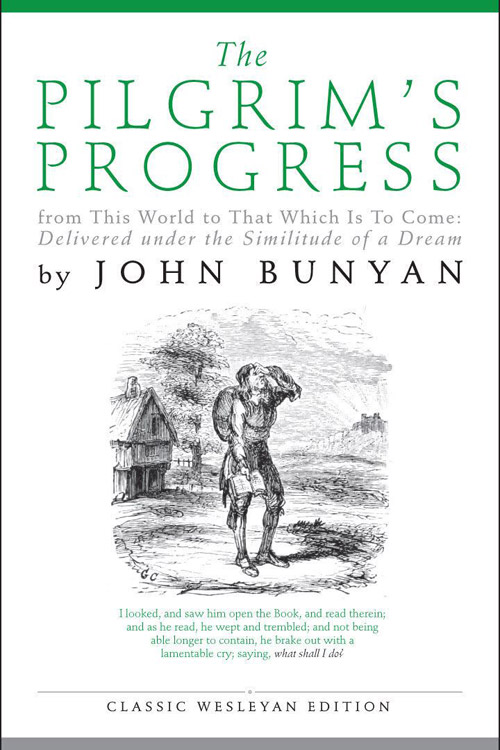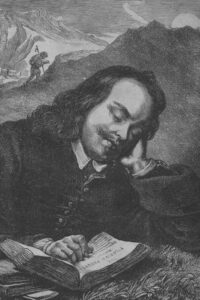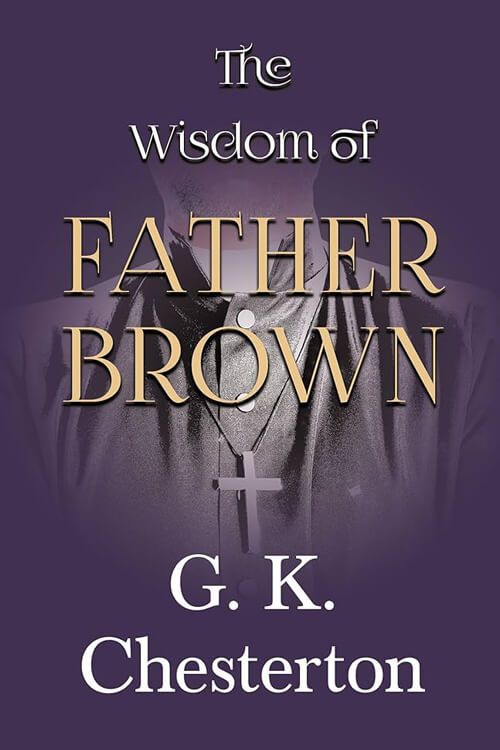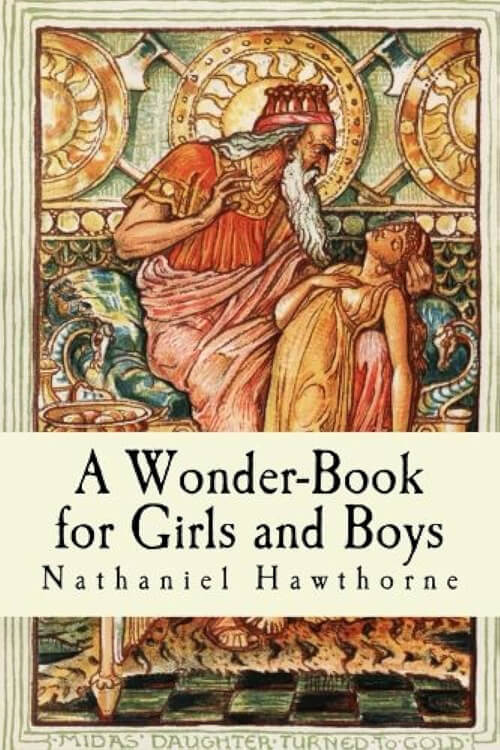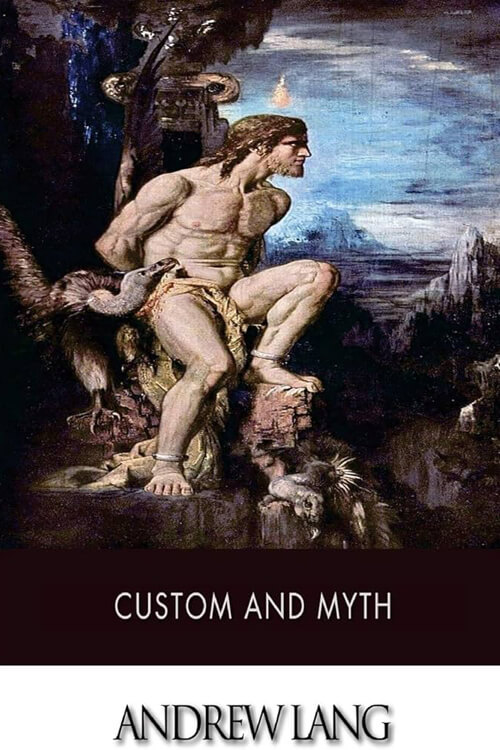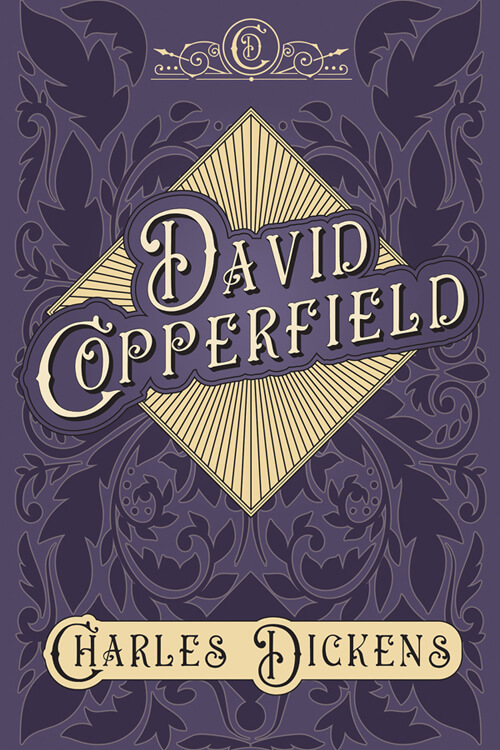
The Pilgrim’s Progress
The entire book is presented as a dream sequence narrated by an omniscient narrator. The allegory’s protagonist, Christian, is an everyman character, and the plot centres on his journey from his hometown, the “City of Destruction” (“this world”), to the “Celestial City” (“that which is to come”: Heaven) atop Mount Zion. A tremendous burden weighs down Christian—the knowledge of his sin—which he believed came from reading “the book in his hand” (the Bible). This burden, which would cause him to sink into Hell, is so unbearable that Christians must seek deliverance. He meets Evangelist while walking out in the fields, who directs him to the “Wicket Gate” for salvation. Since Christian cannot see the “Wicket Gate” in the distance, Evangelist directs him to go to a “shining light”, which Christian thinks he sees.
Christian leaves his home, wife, and children to save himself; he cannot persuade them to accompany him. Obstinate and Pliable go after Christian to bring him back, but Christian refuses. Stubborn returns disgusted, but Pliable is persuaded to go with Christian, hoping to take advantage of the Paradise that Christian claims lies at the end of his journey. Pliable’s journey with Christian is cut short when the two of them fall into the Slough of Despond, a boggy mire-like swamp where pilgrims’ doubts, fears, temptations, lusts, shames, guilts, and sins of their present condition of being a sinner are used to sink them into the mud of the swamp. In that bog, Pliable abandons Christian after getting himself out. After struggling to the other side of the slough, Christian is pulled out by Help, who has heard his cries and tells him the swamp is made out of the decadence, scum, and filth of sin, but the ground is good at the narrow Wicket Gate.
Read or download Book
John Bunyan
John Bunyan (1628 – 31 August 1688) was an English writer and Puritan preacher.
Biography.
He is best remembered as the author of the Christian allegory The Pilgrim’s Progress, which also became an influential literary model. In addition to The Pilgrim’s Progress, Bunyan wrote nearly sixty titles and many expanded sermons. Bunyan came from the village of Elstow, near Bedford. At sixteen, he had some schooling and joined the Parliamentary Army at Newport Pagnell during the first stage of the English Civil War. After three years in the army, he returned to Elstow and took up the trade of tinker, which he had learned from his father.
After his marriage, he became interested in religion, attending the parish church and then joining the Bedford Meeting, a nonconformist group in St John’s church Bedford. He later became a preacher. After the restoration of the monarchy, when the freedom of nonconformists was curtailed, Bunyan was arrested and spent the next twelve years in prison because he refused to give up preaching. During this time, he wrote a spiritual autobiography, Grace Abounding to the Chief of Sinners, and began work on his most famous book, The Pilgrim’s Progress. In 1676, Charles II withdrew his Act of Indulgence, and four years later, Bunyan was imprisoned again – this time only for six months. During that time, he completed The Pilgrim’s Progress.
Bunyan’s later years were spent in relative comfort, and he continued to be a famous author and preacher and was the pastor of the Bedford Meeting. He died aged 59 after falling ill on a journey to London and is buried in Bunhill Fields. The Pilgrim’s Progress became one of the most published books in the English language, with 1,300 editions printed by 1938, 250 years after the author’s death. Bunyan is remembered in the Church of England with a Lesser Festival on 30 August. Some other churches of the Anglican Communion, such as the Anglican Church of Australia, honour him on the day of his death (31 August).

